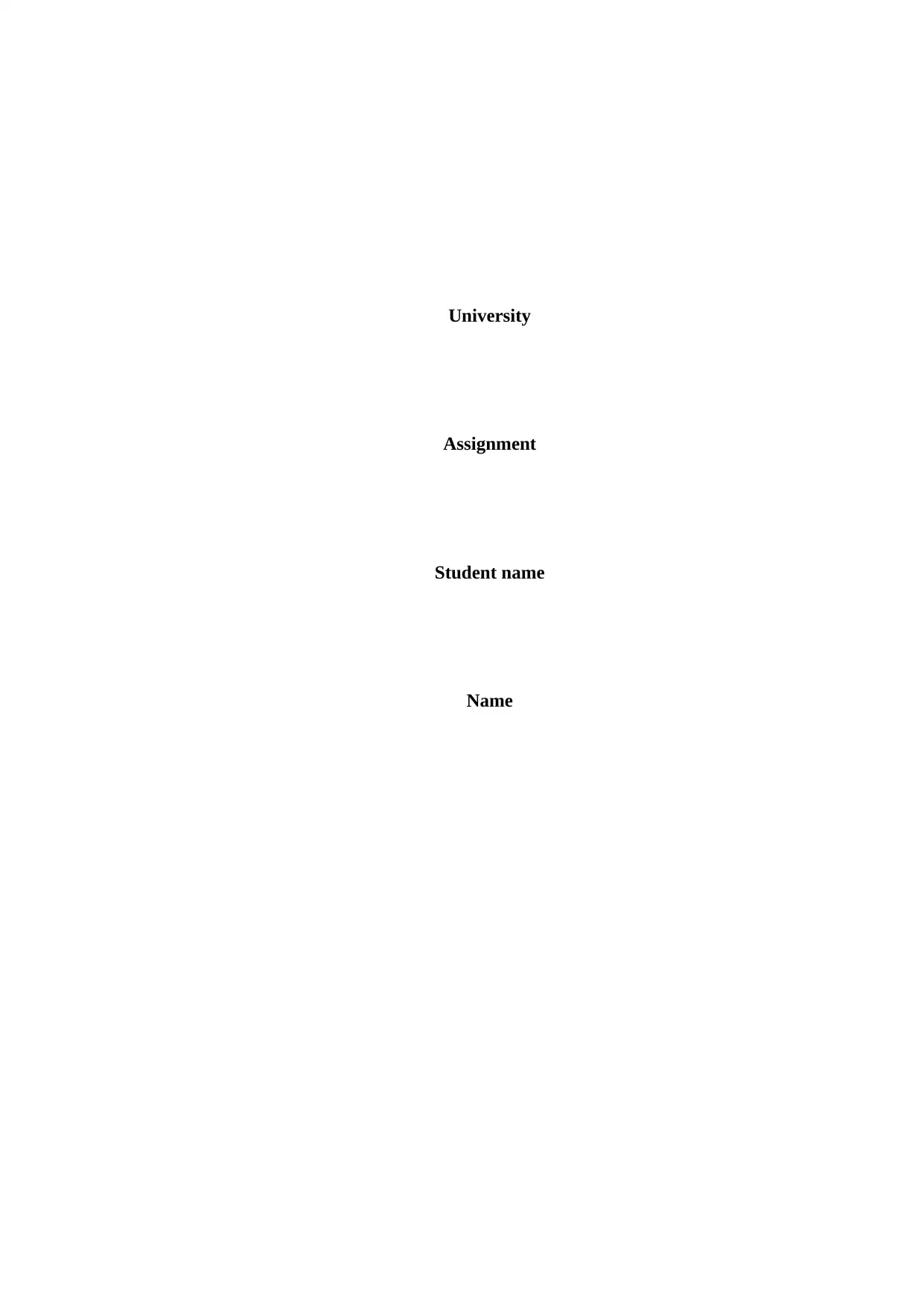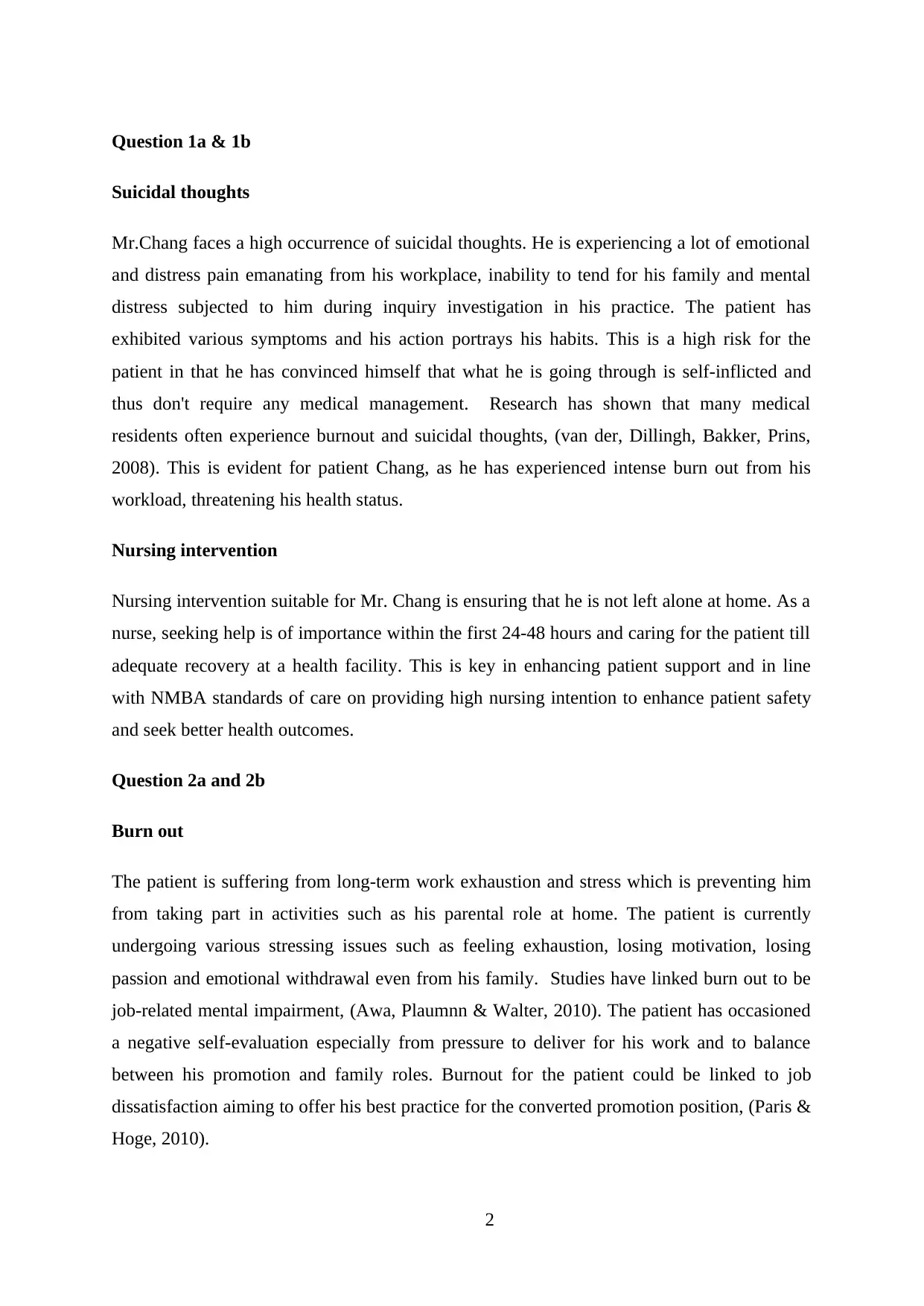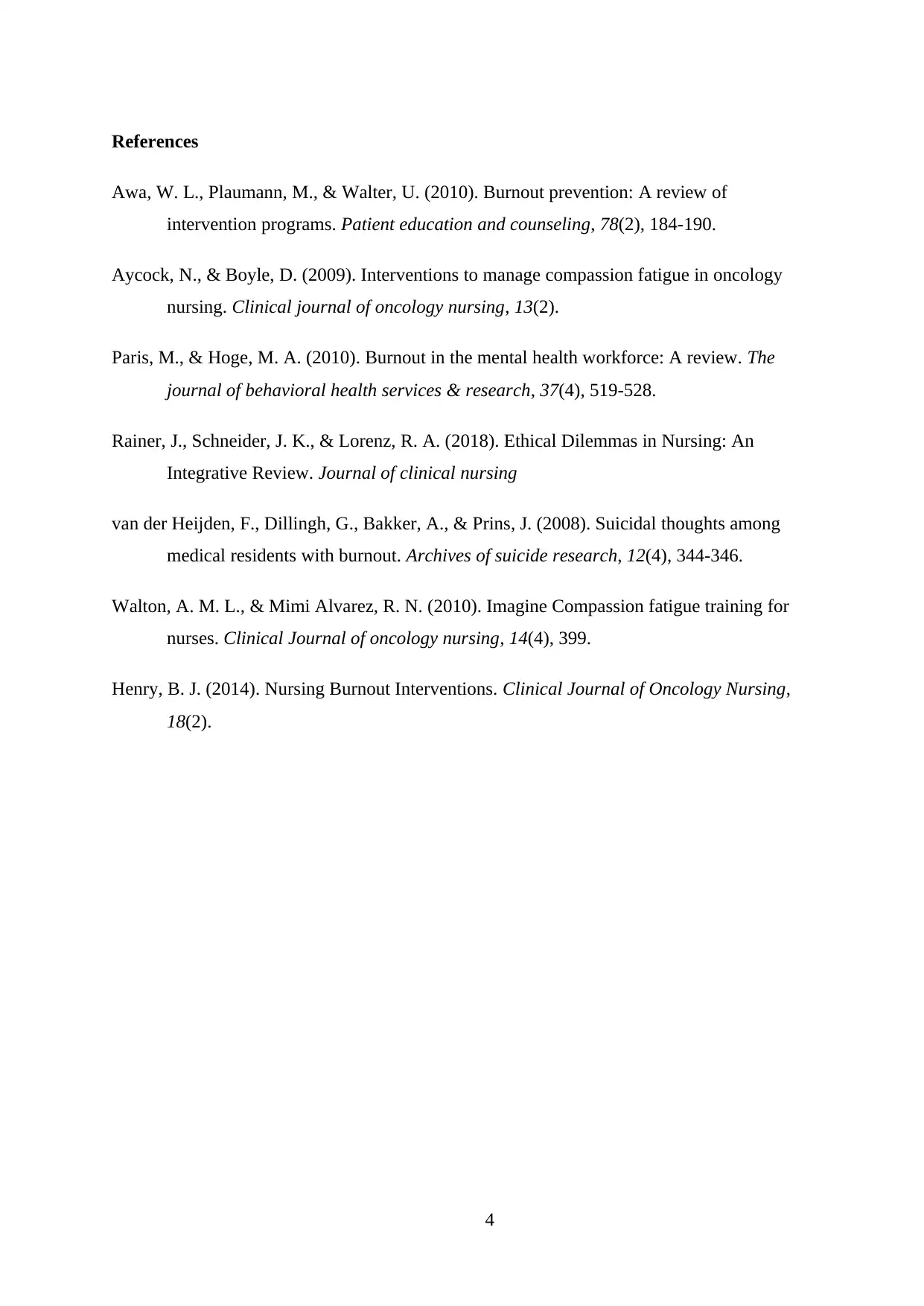Nursing Care: Ethical Dilemmas and Interventions for Mental Health
VerifiedAdded on 2023/06/04
|4
|857
|306
Case Study
AI Summary
This case study examines the case of Mr. Chang, who is experiencing suicidal thoughts and burnout due to work-related stress, family pressures, and an ongoing inquiry. The analysis identifies key issues such as the high risk of suicide due to his conviction that his condition is self-inflicted and the presence of burnout symptoms like exhaustion and emotional withdrawal. Nursing interventions proposed include ensuring constant supervision, seeking immediate professional help, and providing supportive care to enhance patient safety and improve health outcomes. The study also addresses ethical dilemmas related to informed consent and disclosing the patient's medical condition to his family. Furthermore, the case study suggests a four-hour workshop involving experimental exercises, soft music, singing bowls, and oil therapy to manage compassion fatigue and promote well-being, aiming to alleviate the physical and mental health challenges associated with burnout.
1 out of 4










![[object Object]](/_next/static/media/star-bottom.7253800d.svg)